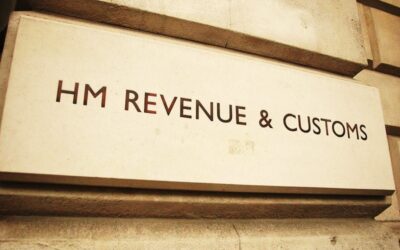TaxWatch analysis shows that package agreed at the G7 would lead to a tax cut for tech companies subject to the Digital Services Tax
On Saturday 5th June G7 finance ministers announced an agreement on changing the tax rules for global multinational companies. The deal was a significant change to the current global tax rules, introducing unprecedented restrictions on the use of tax havens, and a new system of apportioning profit made by large multinationals between countries.
Talks on reforming the global tax system started almost 10 years ago in the UK at the Loch Erne G8 conference. The process was set up in response to a number of scandals that had broken about the use of tax havens by global tech companies in particular. For that reason much of the focus of reform has looked at the tax affairs of global technology giants such as Facebook, Amazon and Google.
In this note we set out our analysis of the consequences of the deal for the UK Tax liabilities of the largest global technology companies that would be covered by the Digital Services Tax (DST).
Our analysis is based on the known shape of the deal as announced by the G7 on Saturday 5th of June. The terms of the deal may still change, and some details still need to be negotiated and are as yet unknown.
In order to analyse the position of the companies in our study we have relied on historical data and had to use some estimates of revenues generated in the UK. For these reasons the figures we have produced should not be taken as the definitive answers to how much tax liabilities will increase under the deal. However, we believe our research provides a strong foundation for an analysis.
We have used data from 2019, as that is the latest year that UK accounts are available for the companies in our study.
We find that the tax liabilities for Amazon, Facebook, Google and eBay in the UK arising from the so called Pillar One proposals are below or at the same level as their current UK tax liabilities. This means that if the new liabilities from Pillar One are additional to current tax liabilities these companies will see their tax liabilities increase. If the Pillar One allocation is not additional, but offset against existing liabilities, there will be very little change to the tax liabilities of these companies in the UK.
However, when looked at as a whole, the package of reforms announced in the G7 Finance Ministers and Central Bank Governors Communiqué could result in very substantial tax cuts for some digital companies due to agreement to remove the Digital Services Tax, which would raise significantly more from these companies than any new liabilities faced under the Pillar One proposals.
No additional revenues would be raised from tech companies in the UK under the Pillar Two proposals.
Pillar Two
The element of the deal that has attracted the most attention is the so-called Global Minimum Tax Rate. This will see countries impose a minimum 15% tax rate on the profits of multinational enterprises. The global minimum will be imposed by the home nation of a multi-national enterprise. This means that if there were any liabilities arising from Pillar Two on tech companies, they would be paid to the United States Government.
Pillar One
Under the Pillar One proposals companies see a portion of their global profits re-allocated to countries where they have a market where they are charged at the local rate.
The allocation formula set out is that a company gets an allowance of 10% of their revenues. Any profit above this is considered to be a “super-profit” and 20% of these super profits are reallocated to countries where they operate.
Currently the proposal is that Pillar One would only apply to one hundred of the largest companies in the world.
We have sought to analyse what this would mean for the companies in our study based on their 2019 accounts, the latest year for which we have full data. We have then allocated the distributable super profit to the UK based on the UK market share these companies have from our estimates undertaken for previous analysis.
We have then compared the tax charge that would arise in the UK from these allocations to the current tax charge these companies have in their UK companies. Again this figure is taken from our analysis of profit shifting by big technology companies.
For Amazon, we have limited the analysis to Amazon Web Services. This is because Amazon as a whole falls out of Pillar One due to its profit margin being below 10%. However, there is an idea being considered to apply Pillar One to particular business segments within large companies. Amazon Web Services, which in 2019 had revenues of $35bn and accounted for over 50% of Amazon’s global profits would likely qualify for Pillar One in itself if it was agreed to apply Pillar One to individual business segments.
|
Pillar One proposals 2019 analysis |
eBay |
Amazon (AWS only) |
|
|
|
Global revenue |
$8,636,000,000 |
$35,026,000,000 |
$161,857,000,000 |
$70,697,000,000 |
|
Global profit margin |
20.25% |
26.27% |
24.48% |
35.10% |
|
“super profit” (margin -10%) |
$885,400,000 |
$5,698,400,000 |
$23,439,300,000 |
$17,742,300,000 |
|
20% of super profit |
$177,080,000 |
$1,139,680,000 |
$4,687,860,000 |
$3,548,460,000 |
|
UK portion of total sales |
15.00% |
6.25% |
9.00% |
5.45% |
|
UK portion of super profit |
$26,562,000 |
$71,207,147 |
$421,907,400 |
$193,406,303 |
|
Exchange rate on balance sheet date |
0.75 |
0.75 |
0.75 |
0.75 |
|
UK Pillar One charge (@19%) |
£3,803,864.07 |
£10,197,361.22 |
£60,420,088.81 |
£27,697,134.56 |
|
UK current tax charge |
£5,260,000 |
£14,582,000 |
£58,987,000 |
£40,049,000 |
The Digital Services Tax
The UK Digital Services tax was first announced in 2018 and came into effect in April 2020. The tax applies to the UK sourced revenues of large multi-national companies providing social media services, search engines or online market places. The tax is levied at the rate of 2% on revenues above £25m, with a discount for any corporation tax paid.The tax is counted as a business expense, and so deductible against revenues for the purpose of working out profit for corporation tax liabilities. This means that if a company books their revenue in the UK, they will see a reduction in their corporation tax bill as a result of the DST.
The purpose of the DST was to target companies that the government determined were not paying a fair share of tax in the UK. The then Chancellor Phillip Hammond said of the DST in his Budget 2018 speech – “It is only right that these global giants, with profitable businesses in the UK, pay their fair share towards supporting our public services.”1 It was always intended as a stop-gap ahead of a global deal on international tax reform.
The communiqué released by the G7 Finance Ministers and Central Bank Governors states that “We will provide for appropriate coordination between the application of the new international tax rules and the removal of all Digital Services Taxes [emphasis added], and other relevant similar measures, on all companies.”2
The removal of the UK DST is therefore part of the package of reforms announced by G7 ministers. The impact of removing the DST must therefore be considered when analysing the proposals.
We have tried to estimate the UK DST that would be placed on eBay, Amazon, Google and Facebook, using our previous work on looking at the sales these companies make in the UK.
For Amazon, the DST would only apply to the fees generated from sellers on the Amazon Marketplace. The Amazon 10-K disclosed that in 2019 Amazon made $54bn in fees to third party sellers. To estimate the UK portion of these fees, we have applied the percentage of Amazon’s total revenues that come from the UK which can be derived from their 10-K form to their disclosed figures for third party seller services.
Both Facebook and eBay book a substantial amount or all of their fees through a UK company. This means that the DST would be an allowable expense to deduct from their pre-tax profits and they would get a discount against their corporation tax liability arising from the DST. We have tried to account for this in our calculations of the total tax liability arising from the DST.
Our analysis shows that for every company that is subject to the DST, the Pillar One proposals would lead to substantially less money being raised in taxation in the UK. If the UK therefore goes forward with the removal of the DST, as the G7 communiqué strongly suggests it will, the package of reforms will lead to a net loss of tax in the UK from eBay, Amazon, Google and Facebook. While not the only companies likely to see a UK tax reduction as a result of the removal of the DST, these four are almost certainly the largest. Between them, based on 2019 revenues, these multinationals look set to pay £232.5m less in tax than they would under the DST.
|
DST 2019 analysis |
eBay |
Amazon (Marketplace only) |
|
|
|
UK Revenues |
$1,323,000,000 |
$3,359,046,970 |
$14,567,130,000 |
$3,853,290,000 |
|
£/$ rate |
0.75 |
0.75 |
0.75 |
0.75 |
|
UK DST @2% |
£19,443,458 |
£50,135,685 |
£219,091,036 |
£58,086,111.84 |
|
Discount on CT for UK booked sales |
-£3,789,257 |
£0 |
£0 |
-£8,213,543 |
|
Total DST |
£15,654,201 |
£50,135,685 |
£219,091,036 |
£49,372,568 |
|
UK Pillar One charge |
£3,803,864 |
£10,197,361 |
£60,420,089 |
£27,697,135 |
|
Benefit from removing DST |
£11,850,336.64 |
£39,938,323.60 |
£158,670,947.00 |
£22,175,433.80 |
|
Reduction from removing DST |
75.70% |
79.66% |
72.42% |
43.90% |
Conclusions
The removal of the digital services tax as part of the agreement reached by the G7 creates significant winners and losers. Companies that are subject to the DST will all see a substantial taxcut arising from the G7 proposals.
This is because in all cases the DST liability is more than any increase in taxes under the Pillar One proposals.
There are some companies that will receive a particular benefit, being companies that are too small to fall under Pillar One, but would have been subject to the DST. This includes smaller social media platforms and online marketplaces.
However, the UK DST is narrowly defined and there will also be companies that do end up paying more in UK tax if they fall under the new Pillar One rules and were not part of the DST regime.
One key issue that needs to be addressed by negotiators is whether corporation tax currently being paid in a jurisdiction will count towards any liability arising under Pillar one. If it does, then all of the companies in our study will not see any significant change in their corporation tax liability in the UK arising from the agreement.
Detailed methodologies
In order to estimate Facebook’s real revenues in the UK, we looked at Facebook’s average revenue per user (APRU), which is published in a chart, broken down by region, appended to the company’s US stock market filings. We then took the mid-point between the US APRU and European APRU basing this calculation on the assumption that the UK would be at the top end of the European APRU range, but less than the US. Using the online tool Napoleon Cat, we calculated an average of 42,000,000 Facebook users in the UK for 2019.
On the basis of these numbers we estimate Facebook’s revenues from the UK to be £2.9bn in 2019.
Facebook’s US 10-K shows a pre-tax margin of 35%.
Facebook bills larger UK clients via its UK company. As a result it can deduct a portion of its DST from its revenues before corporation tax is applied. We calculated that this would have led to a £8.2m discount on 2019 corporation tax liabilities at Facebook UK. This results in a total DST impact of £49.4m.
With the new Pillar One proposals, the amount owed would be £27.7m. The removal of the DST therefore results in a net tax cut of of £22.2m based on 2019 figures.
Until 2016 Google reported the revenues it made from the UK in its US 10-K filing. On average, around 9% of Google’s global revenues came from the UK between 2014 and 2016. We applied this average figure to Google’s 2019 global revenues to estimate the revenues generated from the UK in 2019.
Based on 2019’s revenues, Google would stand to pay £219m in DST.
With the new Pillar One proposals, the amount owed would be £60.4m – a tax cut of £158.7m.
Should the percentage of Google’s global revenues arising from the UK have decreased since 2016, the result would be the same. The DST would remain higher than the pillar one charge. The proposals represent a tax cut for Google.
eBay
The online marketplace eBay launched in the UK back in 1999. eBay’s 10-K shows a global pre-tax margin of 20%, and UK revenues of £997,172,883 for 2019.
All of eBay’s fees are earned via a UK company, which means they would be able to deduct the DST from their taxable profit. This would result in a £3.8m discount leading to a total DST impact of £15.7m based on 2019’s revenues.
With the new Pillar One proposals, the amount owed would be £3.8m – a taxcut £11.9m.
However, it is possible that eBay would not fall into Pillar One, as it is much smaller than Facebook, Google and Amazon, and may not end up being one of the world’s largest, most profitable companies. If that was the case than the package of reforms would be of even greater benefit to the company.
Amazon
Amazon’s 10-K shows a global pre-tax margin of 5%. As such, it would not qualify for Pillar One, which only bites when a company has a profit margin of more than 10%.
However, Amazon Web Services, which accounts for more than 50% of Amazon’s pre-tax profits, has a margin of 25%, and so could qualify if the proposals applied to business segments within companies.
With regards to the DST, this would only apply to Amazon’s fees to third party sellers using its platforms.
Amazon publishes its total revenues from the UK market in its 10-K. It also publishes the total fees it generates from 3rd party sellers, and total revenues and profits at AWS.
We applied the proportion of Amazon’s business that takes place in the UK (6.25%) to AWS’s profits and fees generated from 3rd party sellers to calculate the DST liability and the pillar one liability for the UK.
Based on 2019’s revenues, Amazon would stand to pay £50.1m in DST.
With the new Pillar One proposals, the amount owed would be £10.2m – a taxcut of £39.9m.
This analysis is available as a PDF here.
1 Budget 2018: Philip Hammond’s speech, Gov.uk, 29 October 2018, https://www.gov.uk/government/speeches/budget-2018-philip-hammonds-speech
2 G7 Finance Ministers and Central Bank Governors Communiqué, Gov.uk, 05 June 2021, https://www.gov.uk/government/publications/g7-finance-ministers-meeting-june-2021-communique/g7-finance-ministers-and-central-bank-governors-communique



